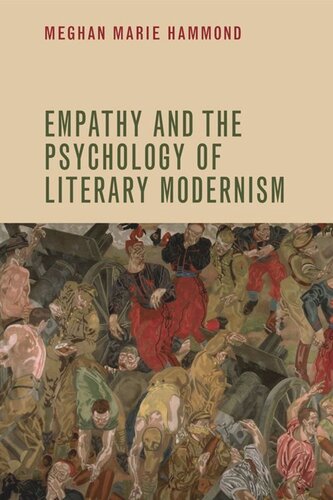

Most ebook files are in PDF format, so you can easily read them using various software such as Foxit Reader or directly on the Google Chrome browser.
Some ebook files are released by publishers in other formats such as .awz, .mobi, .epub, .fb2, etc. You may need to install specific software to read these formats on mobile/PC, such as Calibre.
Please read the tutorial at this link: https://ebookbell.com/faq
We offer FREE conversion to the popular formats you request; however, this may take some time. Therefore, right after payment, please email us, and we will try to provide the service as quickly as possible.
For some exceptional file formats or broken links (if any), please refrain from opening any disputes. Instead, email us first, and we will try to assist within a maximum of 6 hours.
EbookBell Team

5.0
110 reviewsEmpathy is a cognitive and affective structure of feeling, a bridge across interpersonal distance. Coined in 1909 to combine English ‘sympathy’ and German ‘Einfühlung,’ ‘empathy’ is a specifically twentieth-century concept of fellow feeling. Empathy and the Psychology of Literary Modernism looks into the little-known history of empathy, revealing how this multi-faceted concept had a profound effect on literary modernism.
Meghan Marie Hammond shows how five exemplary writers (Henry James, Dorothy Richardson, Katherine Mansfield, Ford Madox Ford, and Virginia Woolf) tackle the so-called ‘problem of other minds’ in ways that reflect and enrich early twentieth-century discourses of fellow feeling. Hammond argues that these authors reconfigure notions of intersubjective experience; their writings mark a key shift away from sympathetic forms of literary representation toward empathic forms that strive to provide an immediate sense of another’s thoughts and feelings. But while literary modernism values empathic experience as an ideal, it is also teeming with voices that recognize potential for danger, even violence, in acts of empathy. These voices illuminate our culture’s ongoing concern with empathy’s limits.